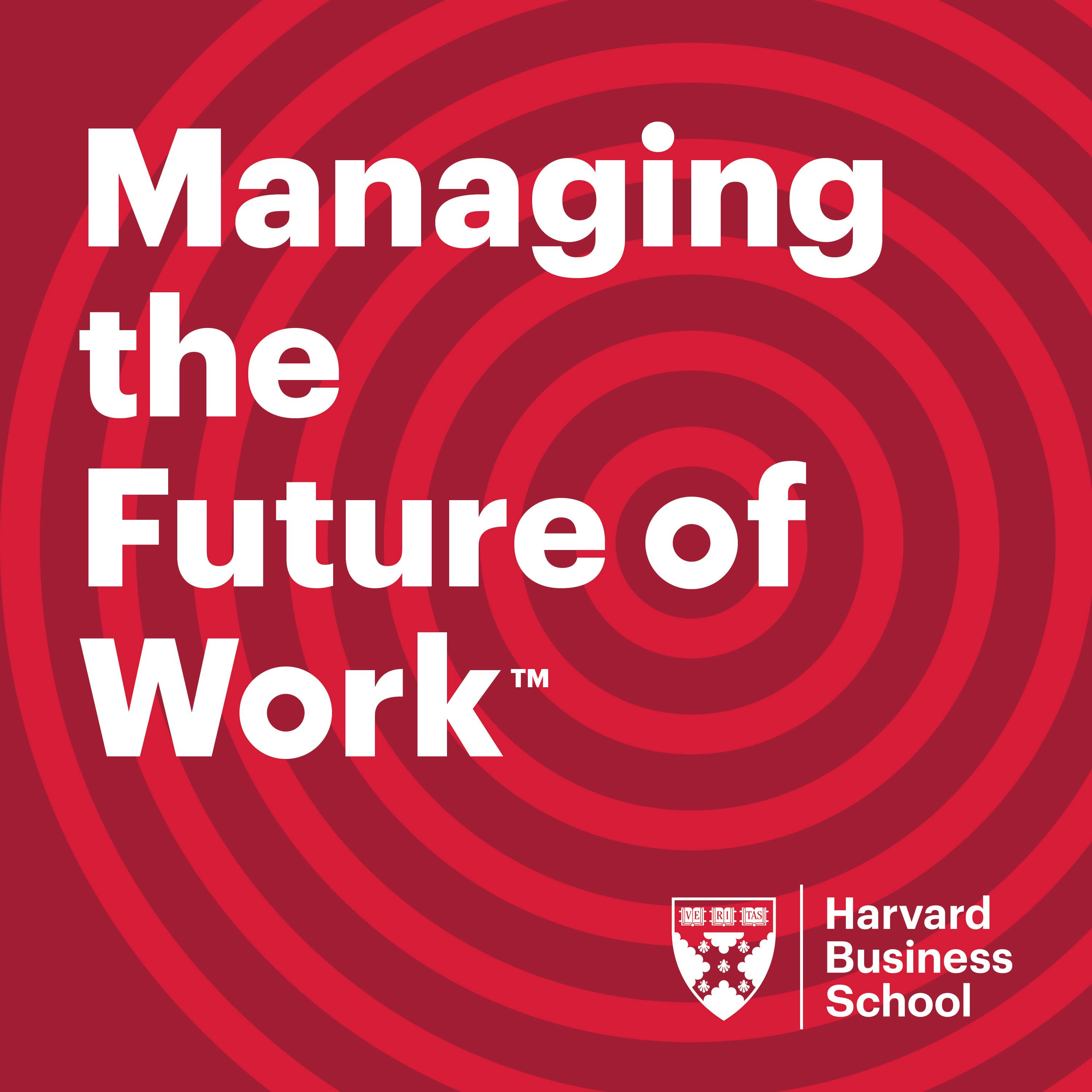

HBS Managing the Future of Work
Harvard Business School
Artificial intelligence. Robotics. The Gig Economy. Globalization. The world is changing at a dizzying pace in ways that will have a profound effect on the economy, jobs and the flow of talent. How will firms cope with the changes ahead and what steps do they need to take today? Each episode features faculty from the world’s leading business school interviewing CEOs, technologists and experts on the bleeding edge discussing how to survive and thrive by managing the future of work.
Episodes
Mentioned books

Dec 9, 2020 • 26min
Udacity’s skills play: Closing the loop on demand and supply
As jobs give way to skills as units of work, training is following suit. Udacity’s relationships with Fortune 500 companies, universities, and national governments inform its practical online training in technical and business skills. CEO Gabriel Dalporto discusses Nanodegrees, experiential training, government policy, lifelong learning, and the importance of aligning skills training and business objectives.

Dec 2, 2020 • 25min
COOP Careers: It’s what you know and who you know
Underemployment is a common trap among first-in-their-family college grads and those from low-income backgrounds and underserved communities. Kalani Leifer, founder and CEO of nonprofit COOP Careers, talks about how his organization works with recent grads to equip them with digital skills and to help them develop all-important peer-group social capital.

Nov 25, 2020 • 29min
PwC: Coaching change in times of crisis
Covid-19 has accelerated many organizational trends, from remote work and digitalization to automation and a growing recognition of inequalities. Consulting firms are key actors in responding to this dynamic, since their judgement has influence well beyond their own affairs. What can we learn from their latest thinking on the new normal and the future of work? Michael Fenlon, PwC’s Chief People Officer shares insights on managing remote work, addressing disparities, maintaining wellness (including mental health), developing workforce skills, and the importance of purpose and trust.

Nov 18, 2020 • 28min
WWT: IT innovation rooted in diversity and employee wellbeing
Corporate social responsibility and commitment to a local workforce can go hand-in-hand with profitability. World Wide Technology in St. Louis is managing to thrive while dealing head-on with the pandemic and social and racial issues. One of the largest minority-owned businesses in the US, the 30 year-old privately held firm employs more than 6,000. The rare global tech firm based in the Midwest, it boasts a roster of Fortune 100 customers. CEO and co-founder Jim Kavanaugh discusses company’s evolution from value-added reseller to diversified IT firm and its longstanding emphasis on employee wellbeing, diversity, and inclusion.

Nov 11, 2020 • 28min
Is survival on the post-Covid menu for restaurants?
The restaurant industry has been especially hard-hit by the Covid-19 pandemic. Restaurants quickly shifted from indoor dining to a greater reliance on online ordering, curbside pick-up, outdoor dining, and delivery. Toast, a restaurant management services company, provides tools for all facets of running a restaurant. CEO Chris Comparato talks about the future of dining and explains how the company helped its clients adapt to the new normal, facilitated access to capital, and advocated for restaurant relief.

Nov 4, 2020 • 32min
IBM P-TECH and SkillsBuild: Narrow the skills gap, broaden opportunity
Can public-private partnerships do the heavy lifting of workforce development while promoting upward mobility? And can they help underserved groups participate in a post-Covid recovery? IBM’s P-TECH high school STEM program works with community colleges and industry partners to support students as they earn a high school diploma and an associate degree. The company recently launched SkillsBuild, a training program for adults from vulnerable populations. IBM VP of corporate social responsibility Grace Suh discusses integrating workplace requirements into education and training; digital certificates; virtual internships; on-the-job training; and what it takes to extend access during the pandemic.

Oct 28, 2020 • 28min
Glint-LinkedIn: Worker sentiment informs management
Polling fatigue is normal in the runup to a presidential election. Employers are finding ways to tap into worker sentiment less obtrusively. Glint-LinkedIn equips firms with survey tools and AI analytics to keep tabs on the collective mental state of their employees. Justin Black, head of people science at LinkedIn, explains the potential benefits: productivity gains, a more engaged workforce, and less burnout; and the pitfalls: disengagement and a loss of trust. Covid-19, social strife, and the strains of remote work raise the stakes.

Oct 21, 2020 • 31min
Community colleges: AACC head Walter Bumphus on adversity and opportunity
How will US community colleges emerge from the coronavirus pandemic and the economic and social disruptions of 2020? Dr. Walter Bumphus, President and CEO of the American Association of Community Colleges (AACC), discusses the role of the nation’s over 1,000 2-year post-secondary institutions in responding to the multiple crises disproportionately affecting their 12 million students. As the AACC enters its second century advocating for community colleges, it looks to bolster their workforce development capacity and their ability to foster upward mobility.

Oct 14, 2020 • 30min
Chattanooga bridges the digital divide to make online learning more equitable
For some families online learning is a rocky road. For others it’s a dead end. To address the uneven distribution of digital infrastructure, public-private partnership EdConnect provides students in underserved areas with broadband. Tennessee’s Superintendent of the Year, Dr. Bryan Johnson and CO.LAB startup accelerator CEO, Marcus Shaw talk about how, working with municipal utility EPB, they rallied stakeholders to deliver funding, resources, and access.

Oct 7, 2020 • 35min
How US community colleges can bolster the post-Covid recovery
The US is facing a tsunami of demand for skills training and job placement. Its 1,100 community and technical colleges offer the best institutional infrastructure and student support for the task, but key reforms are needed. So argues The Indispensable Institution: Reimagining Community College, a June 2020 report from nonprofit Opportunity America. The group’s president, Tamar Jacoby, discusses the report’s findings, which stress the need for better workforce development.


